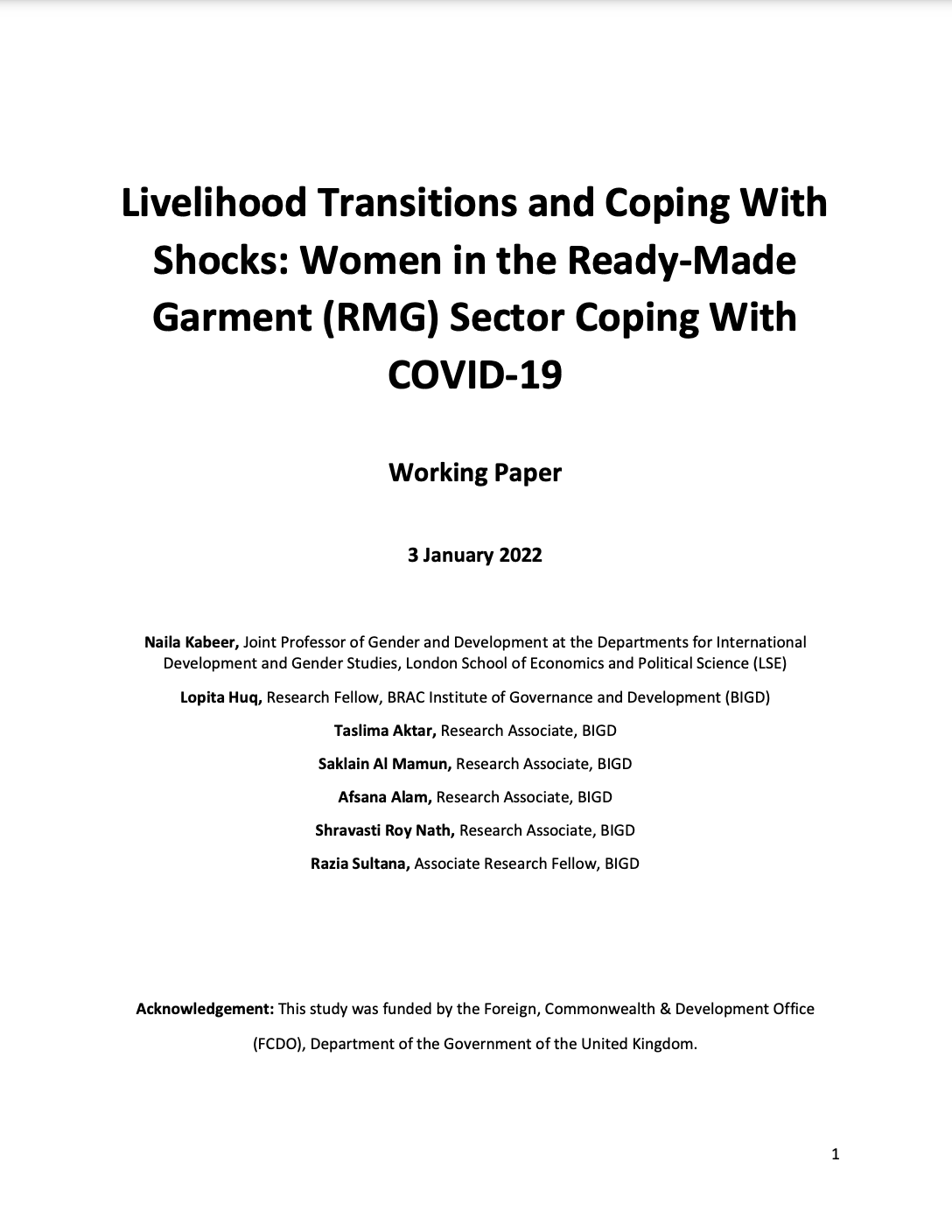In this paper, we examine in detail the experiences of a small group of workers from the export-oriented ready-made garment (RMG) industry in Bangladesh and how they coped with the shocks and disruptions associated with COVID-19. The research is based on qualitative interviews of male (10) and female (30) RMG workers and several key informant interviews (KIIs) with NGO staff and trade union leaders working on the RMG industry in Bangladesh. It was carried out during Jan–Feb 2021. Due to the COVID-19 situation, this research was conducted over the phone. The garment workers went through a period of uncertainty and hardship, exacerbated by the government’s lack of clarity about the duration of the lockdown and employers’ responsibility. Although there was provision for a stimulus package, our research found that the more privileged sections of the garment workforce, those working in registered factories, benefited from these provisions. Those in small, unregistered factories suffered the same fate as informal workers: deprived of their jobs and left to cope on their own.
This website uses cookies so that we can provide you with the best user experience possible. Cookie information is stored in your browser and performs functions such as recognising you when you return to our website and helping our team to understand which sections of the website you find most interesting and useful.






